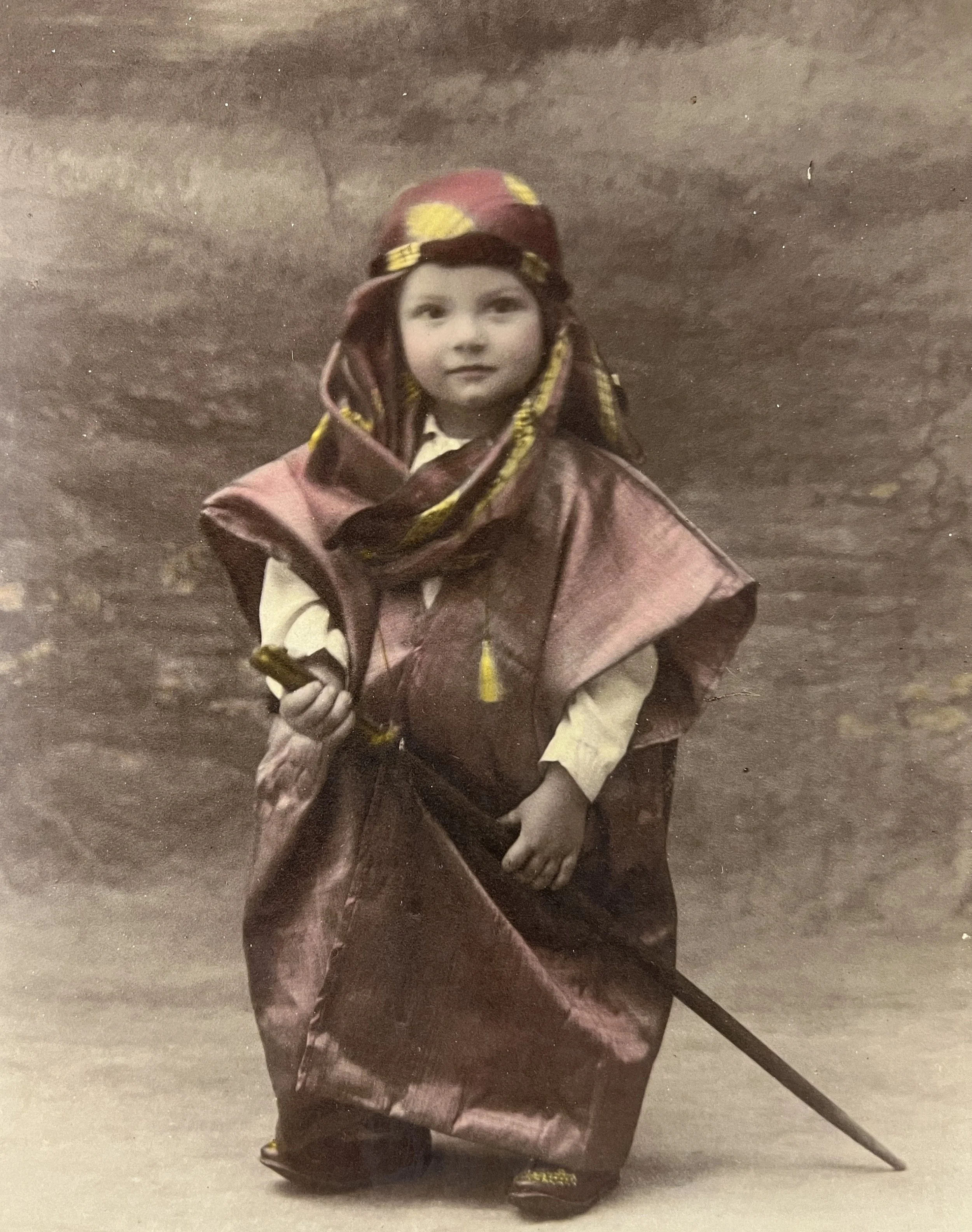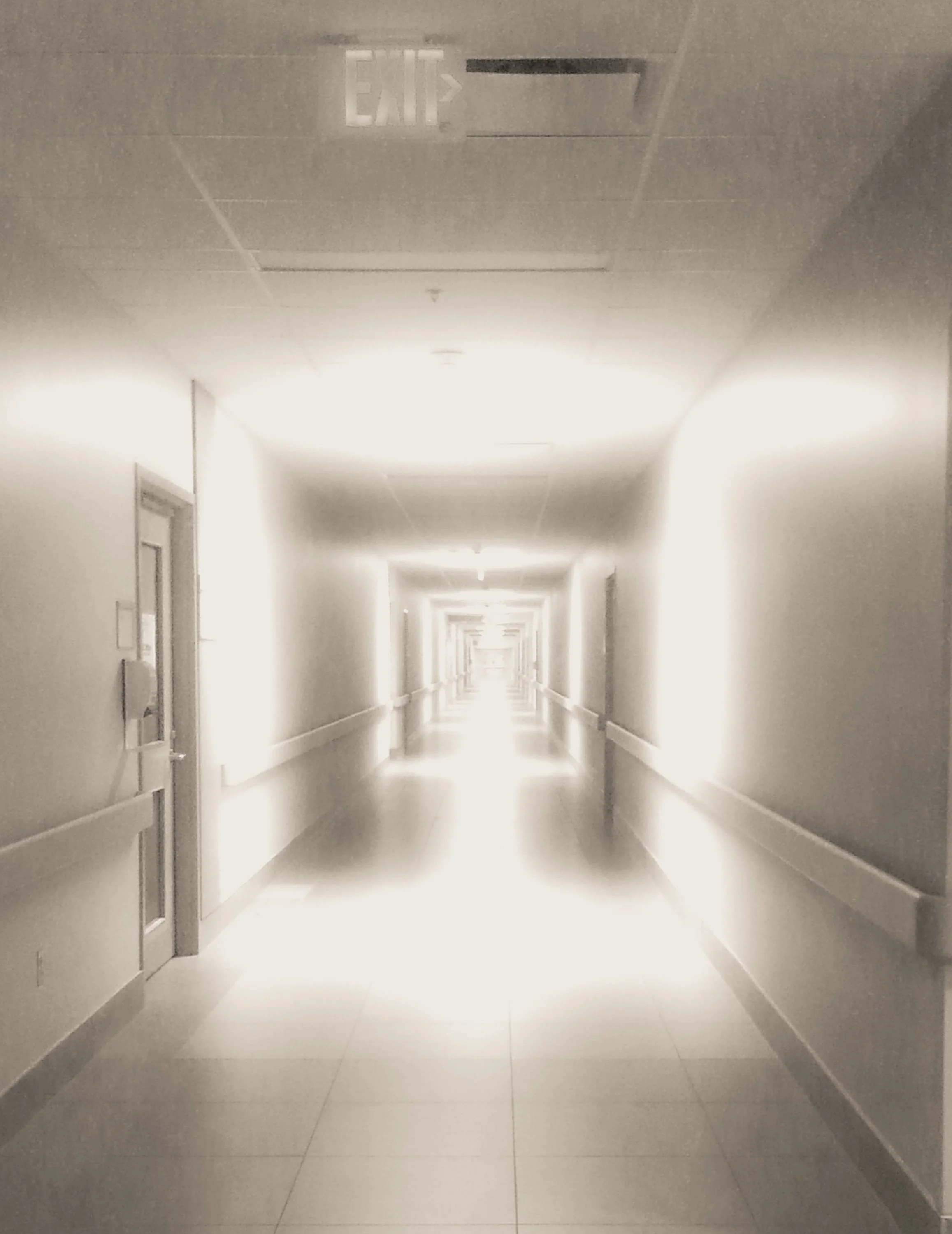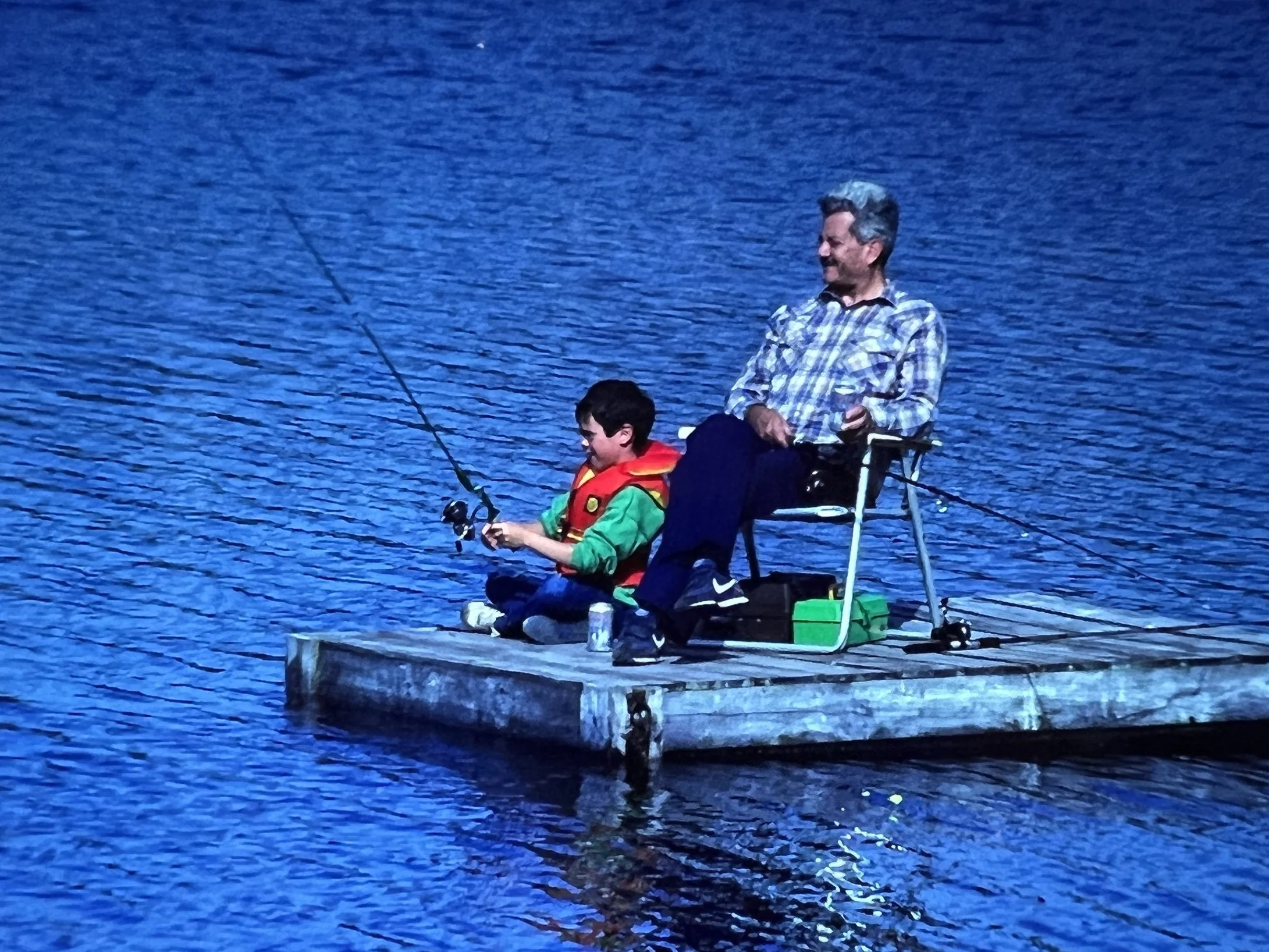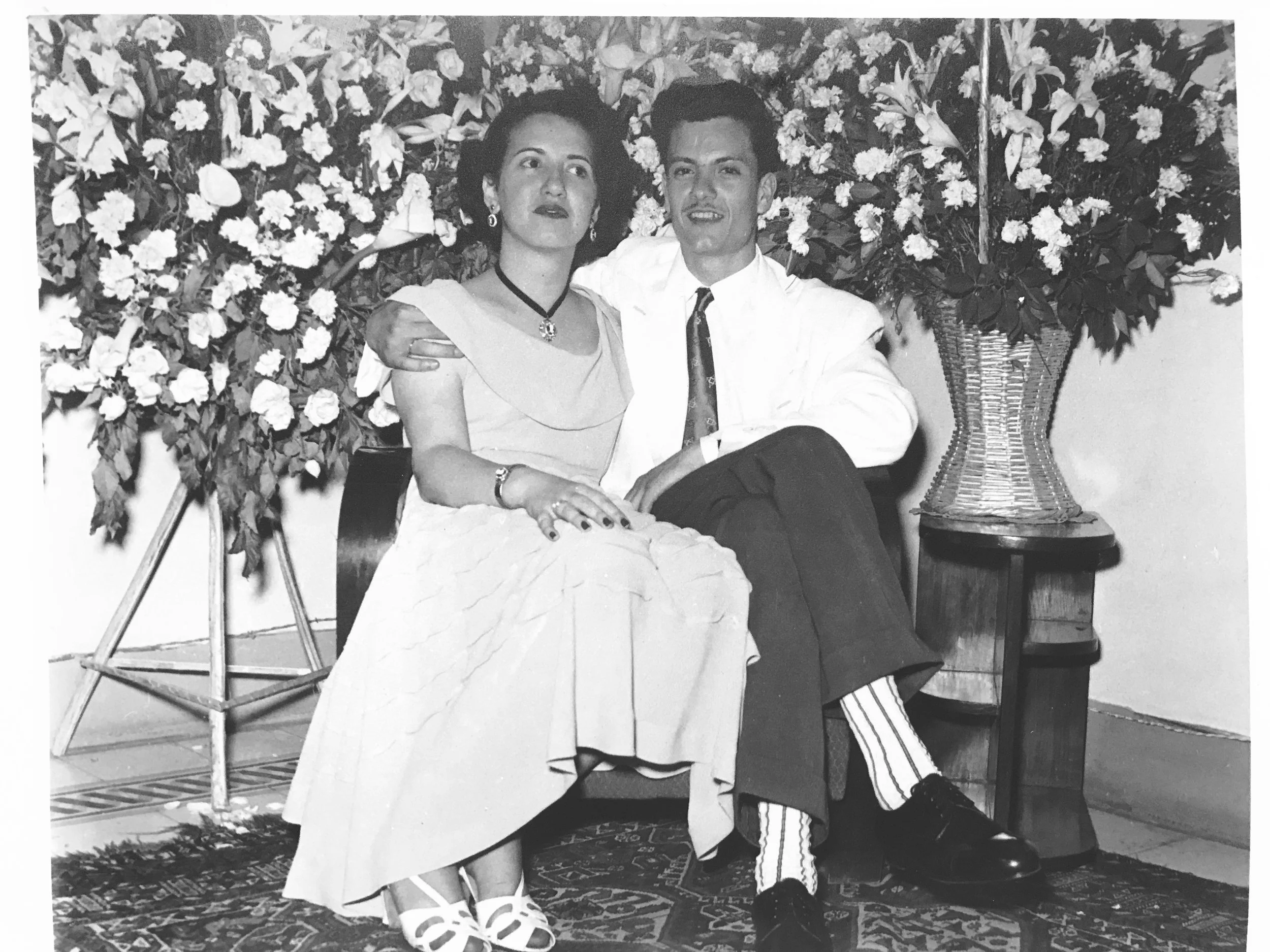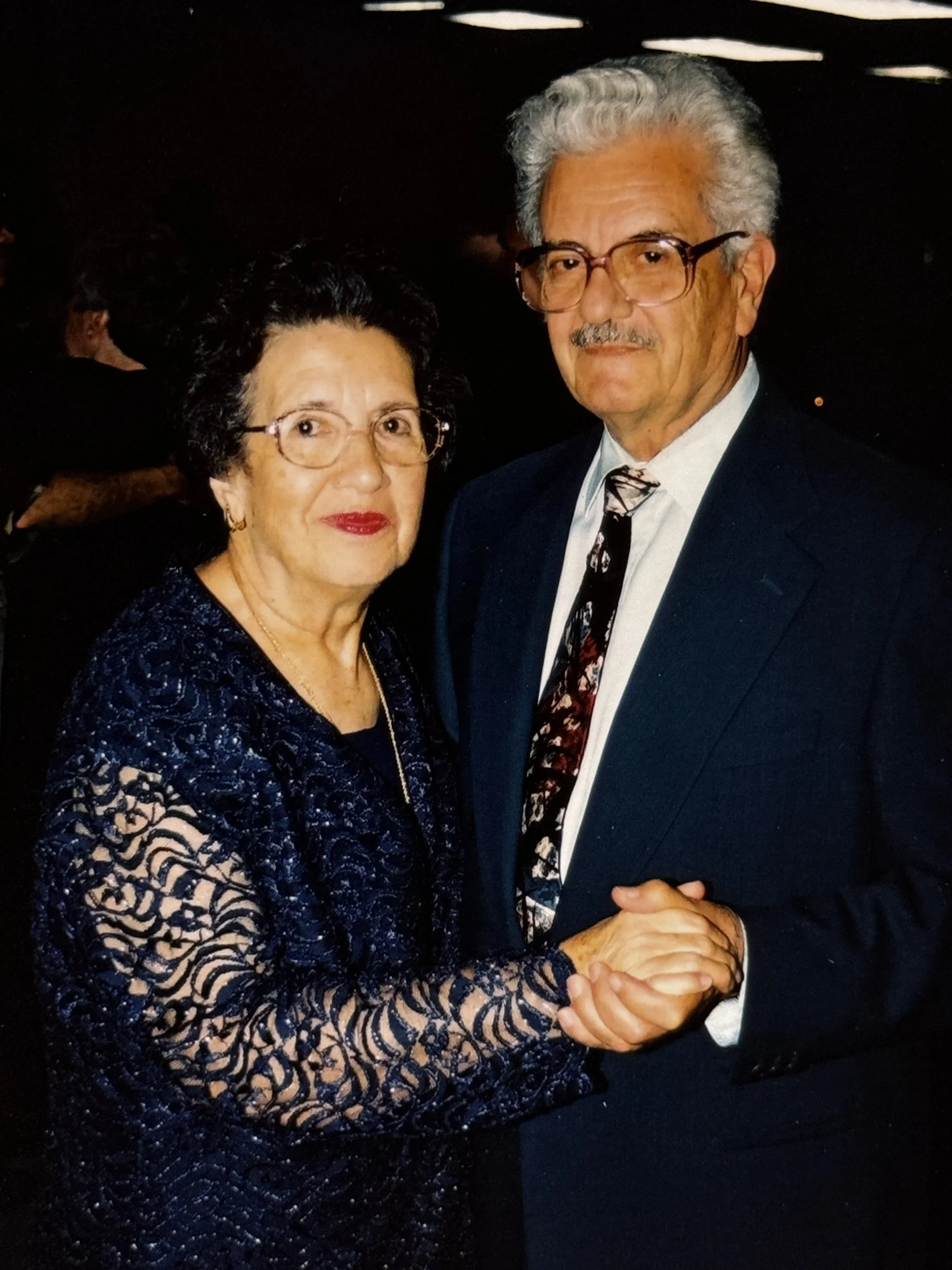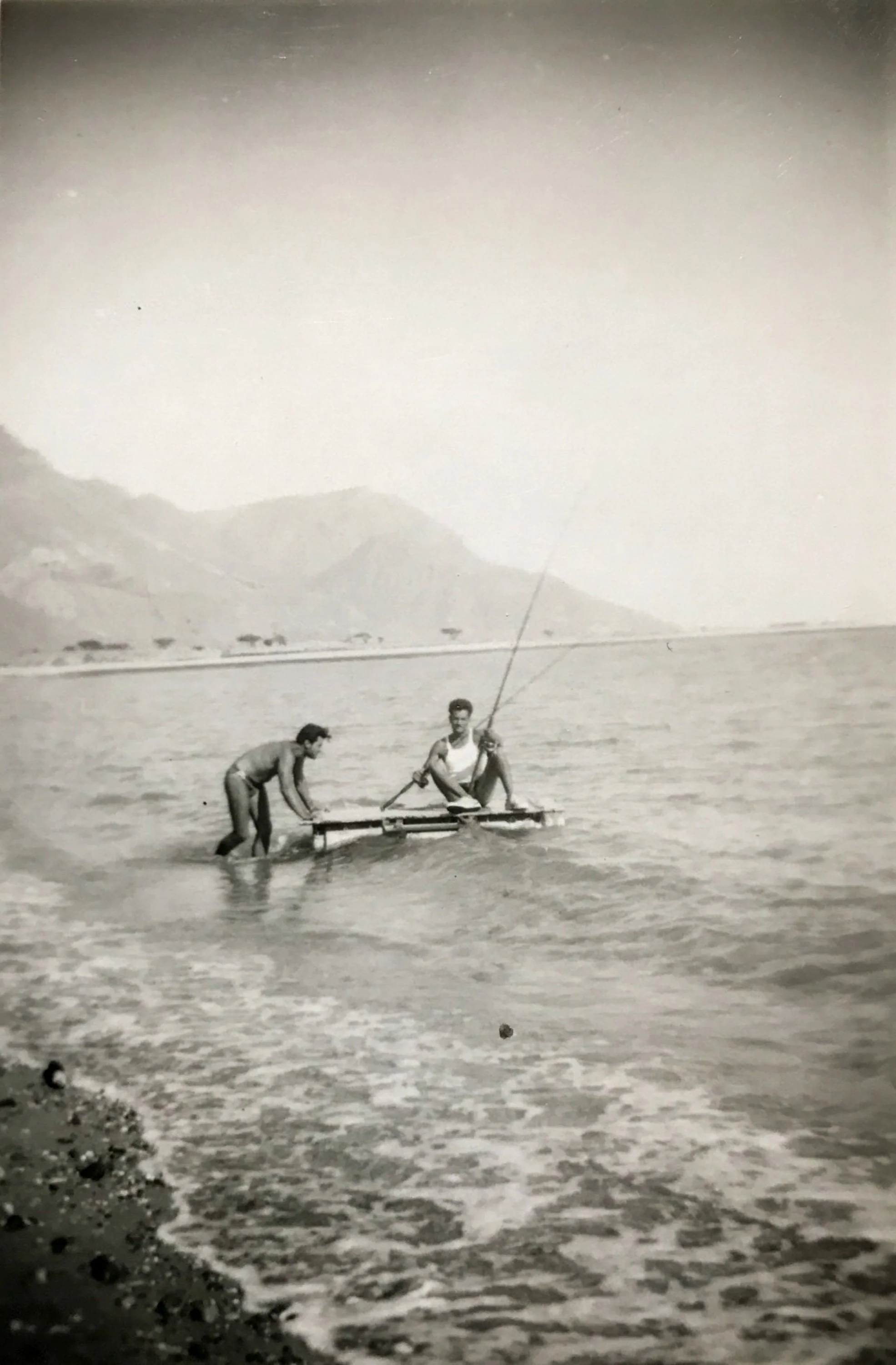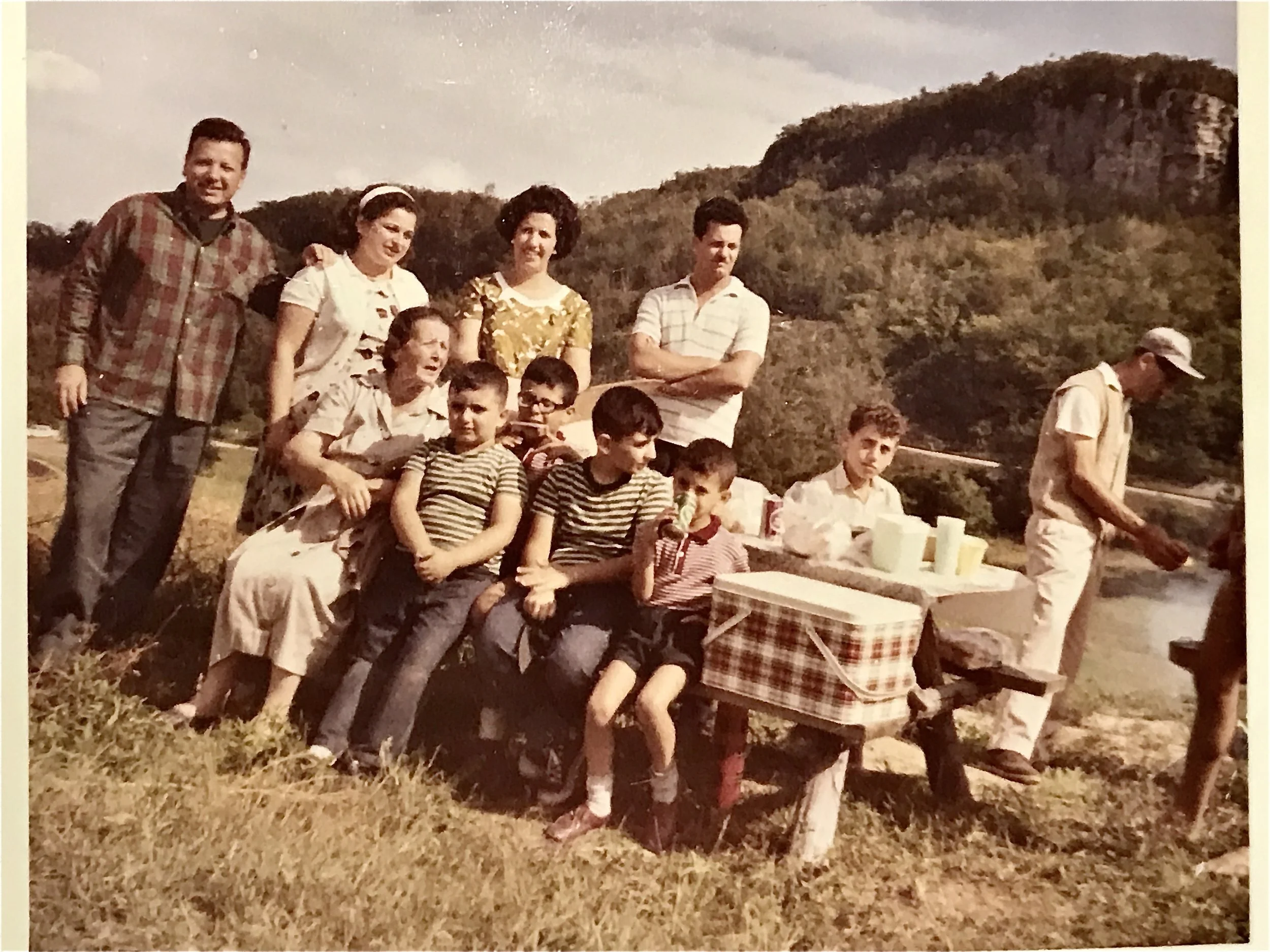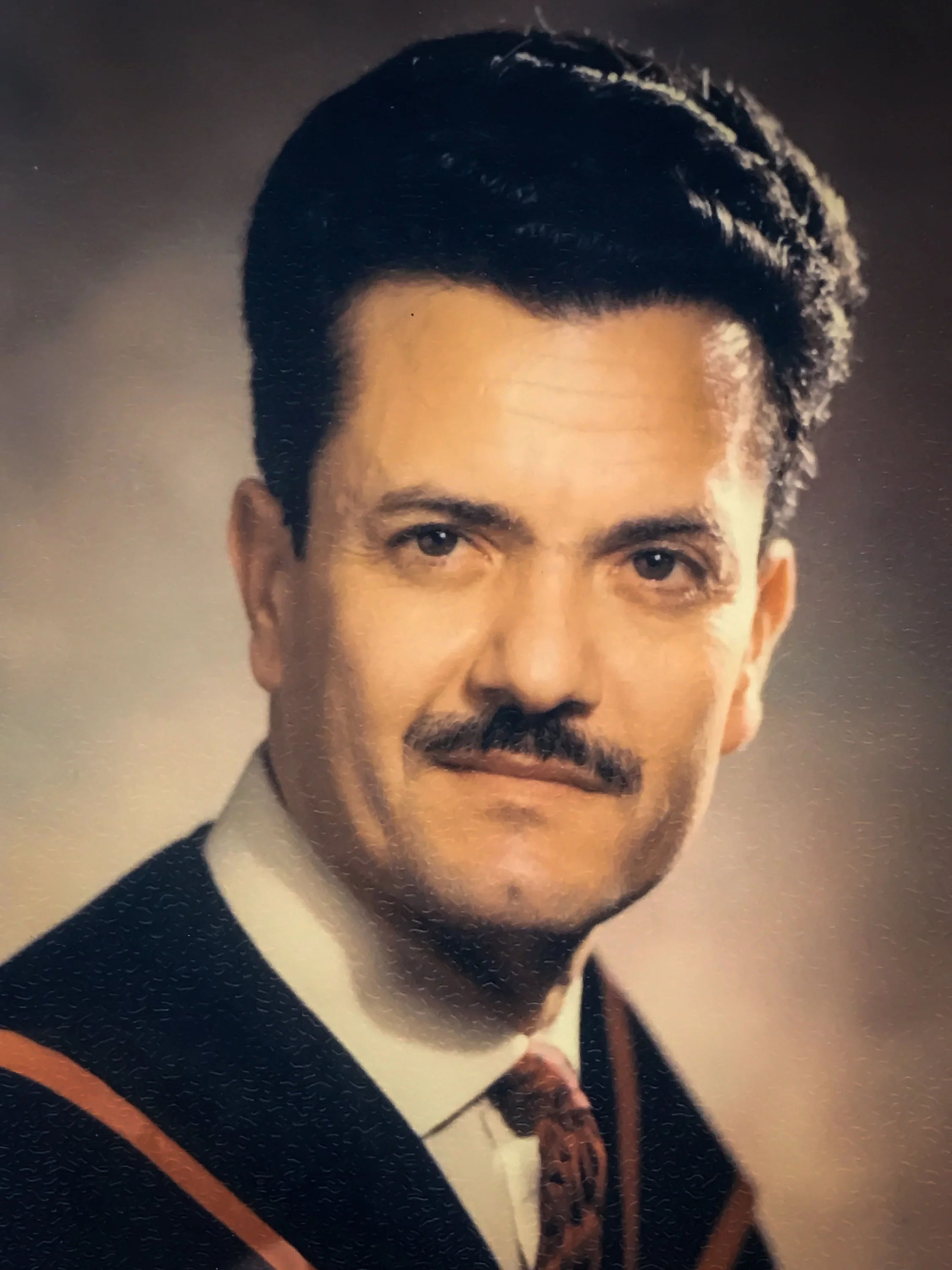Walks with my Father
This is a Saturday morning in mid-August 2025. I find myself drawn to the keyboard and just typing away. What began as a simple exercise has turned into a small mission. I'm listening to the headphones I successfully paired with my computer on the first try. I’m already having a good day with technology. How much better can life get?
Many people thought that Dad was the spitting image of Omar Sherif. Doesn’t this look like the tribal Chief Ali in Lawrence of Arabia?
I am listening to Beethoven’s Emperor Concerto, or as it is appropriately known, Piano Concerto No. 5. Most people probably recognize it instantly. To me, it reminds me of my father, who passed away ten years ago. The day he died, my wife and I visited him at the hospital. He looked unkempt, dishevelled, and unshaven—something he would never have accepted for himself in any of his nearly ninety years. Dad was always impeccably clean-shaven and often overdressed.
The nurse on duty explained the different breathing stages at the end of life, and we were only one stage away from the final one. The last stage, once it began, would give us time to get back to the hospital to say our final goodbyes. The nurses would call us once the final stage started. My wife, Donna, and I decided that, because the dog at home was alone without a break to go out and pee, and she would be suffering, we needed to go back and would return once we received the call. We drove the forty-five minutes back to the house in mid-afternoon, with me thinking about how badly Dad looked, and I felt uncomfortable leaving him like that.
That uncomfortable feeling worsened throughout the day. By ten thirty that evening, I was too restless, so I had to go to the hospital to shave him. I arrived after eleven. He was still breathing the same way as when we left him earlier that afternoon. He remained uncommunicative, but I understood that we could still communicate with the patient, even if we didn't know exactly what they were taking in at that moment; they were still receiving it.
I started shaving Dad and chatted with him about the Leafs' win that night, a rare occasion, but I figured, as a long-time Leafs fan, he would appreciate hearing about their victory. I also played the Emperor Concerto, knowing it was one of his favourite pieces.
The other was a song written by my son Chris and his cousin Adam called ‘Sailing Home.’ Chris was in British Columbia, 4,500 kilometres away, performing a gig at the Grey Cup for the Atlantic Schooners. When they heard it was time to say goodbye to “Pops,” they rushed back instead of staying for the rest of the party. They never did make it, but Tara had called Chris, and he said his goodbye remotely. Sailing Home has become a farewell song, played in memory of loved ones who have passed away. It has since touched many lives. It was even honoured with a special choreographed dance to honour Chris by the Pride of Stewart Highland Dance School.
Once I shaved Dad, I felt better; he looked presentable in a way he would have approved, given his situation. The nurses reminded me that the next stage was still a while away and told me to go home and rest, as the following day would be long. I did as they asked.
During our last visit to see Dad, the nurse on the night shift told us we had time to get there and say goodbye. Alas, fortune wasn’t on our side. I had this sneaking premonition that Dad had moved on during our return trip. When I looked down the hallway, I knew I had to take that picture. I wonder if that was the route he took when he left.
I was home for just half an hour before I received that dreaded call. We got into the car and headed back, only to discover that he had passed away a few minutes earlier. I suppose he wasn’t ready to go because of how he looked. My shaving his stubble was, in hindsight, a way of saying that we’ve got this — that we will be alright — and that Mom was also in good hands. It is as if that gave him comfort and permission in knowing we’ll be ok. Not that he ever needed our permission to do any thing.
That was ten years ago, and many times throughout a week or even in a single day, something happens that reminds me of him. Sometimes they bring a smile or even outright laughter, while other times they make me feel a little sad. Either way, it makes me think that he is still with me. He is still walking with me in the way he infiltrated my mind, and indeed shaped who I am to this day, even though I am now in my seventies.
What follows are several stories, interactions, and conversations we’ve shared over time. I wanted to write them down so my children and their children will remember what life was like. In recording these anecdotes in written form, I am quickly discovering that the way I behave, in fact, the very essence of who I am, is a sum of all these experiences. Some I learned formally, others by osmosis, and some by observing both my parents in action. I am a sum of all my experiences up to this point. No apologies or rewards are necessary; that’s just how it is.
Children are always a mix of their parents. They are a combination of physical, emotional, and mental aspects. For example, Chris, my son, has my long trunk and Donna’s long legs, so he stands at 6’3”. His sister Tara has my short legs and Donna’s short trunk, making her nearly six inches shorter than her brother.
It doesn’t end there; children also mirror the best and worst qualities of their parents. If you want to spot a character flaw in yourself, watch your children; they will magnify it, making it visible to everyone. Conversely, any positive trait you possess is also there for you to recognize.
Let’s go for a walk with my father.
A couple of stories occurred before I was born. I've tried to keep the stories in chronological order as much as possible. Some are out of sequence, and a few are from other people, but most are my own recollections.
As a final note, I repeatedly re-read and edited this content. However, most of it focuses on interactions with my father; it is quickly becoming my journey shaped by those interactions.
Sami and Lucy
A few years and many miles, adventures and stories later?
YOUNG SAMI
Sami was a genuine ladies' man and a true bon vivant. He was always popular with the girls—many thought of him as an Omar Sherriff clone. One of his closest friends was Alfred Hakim. They would go out dancing and partying, but they always returned to Alfred’s house, where Alfred’s younger sister would spoil everyone and make sandwiches for them. The story goes that Sami found the sandwich maker, Lucy, much more appealing than the other young women. They eventually got engaged, then married, and remained inseparable for 63 years.
Sami was self-taught in many subjects, mainly foreign languages such as English and French. He also learned some Italian and a bit of German, all to impress the ladies. He was a very competitive player in tennis, swimming, and bridge. He was good enough to become the club champion at the Cairo Sporting Club in many of these disciplines.
His main passions, apart from Lucy, were becoming a lawyer, and he was one of the youngest to be called to the bar at that time; he was also passionate about classical music, tennis, and bridge.
STABBING
During one of Sami’s past curfew evening runs, he decided to return through the bedroom window. The only challenge was that his brother, Mounir, had a desk beneath the window. The route from the window meant that the desk was used as a stepping stool. That usually wouldn’t have been an issue, but on that night, Mounir was sitting and studying. When Sami stepped on Mounir’s stool, it upset him. He warned Sami to get off the desk. Sami laughed and said, “What are you going to do about it?” Mounir grabbed his letter opener and stabbed his brother in the foot with it. I’m guessing Sami never stepped on that desk again. What remains a mystery is just how much damage was done.
Funny aside, Monique MacDonald has a different version of the story. Her father is Mounir.
Sami and Mounir at the back, Teta Latifa and Gedo Naguib in the front.
Editing credit to Ed Farquharson -
MY EARLIEST MEMORY
Our home was very close to the military base in Heliopolis, a suburb of Cairo. There was a war in 1957 and for safety reasons, we had to relocate and sleep on the floor in Dad’s office in the city centre, away from the military base. As a three-year-old, I needed entertainment. I remember my dad making a briefcase for me from a large brown Manila envelope, folded in half, taped on the sides, with a slit in the middle to create a three-compartment briefcase. I proudly carried it around the office, pretending I was a lawyer heading to court. I joke about it, but my jobs, even in retail, involved carrying a briefcase or folder; they were all just fancy folded envelopes.
RED SEA ADVENTURES
&
NAGUIB VOWS TO BE A GOOD COOK
Sami was the idea man; Mounir took those ideas and delivered the finished product.
“What happens at the Red Sea stays at the Red Sea.” That was the rule of engagement sixty-five years ago, and I still seem to live by that mantra today. That has been beneficial, as my entire livelihood as a financial planner and investment advisor depended on keeping client information confidential when necessary. The reality was that nothing inappropriate occurred; it was just the ongoing joke. (But don’t tell anyone, or it would lose its aura and mystique.)
One must consider the environment at the Red Sea that we experienced in the late fifties and early sixties. Imagine beautiful, crystal-clear blue water. Add a sandy beach and a one-lane road, ranging from ten metres to a hundred metres away. Sometimes, the roadway was covered in sand, leaving only one lane clear. On the other side, the same situation, ten to two hundred metres or more of sand. Finally, there were hills, ranging in height from 100 to 500 metres. One notable aspect was that, as far as you could see in either direction, there were no trees.
A few events at the Red Sea helped shape who I am. Dad was a terrible cook who often improvised out of necessity or his tendency to cut corners and make things simpler. For example, one of the most famous dishes in Egypt is called “Foul Medames.” It is made with fava beans, oil, lemon, garlic, salt, and pepper, seasoned to taste. It is a staple food for most of the population. Sami wanted to reduce the mess he caused. He would place the unopened can into a pot of water to heat it. By opening the can afterwards, he avoided a big cleanup with the saucepan.
Another well-known incident was when we were running out of drinking water. Dad was worried about running out on the last day of the trip. Dinner was spaghetti, which needed salted water to cook the noodles. What does one do? We had an entire sea of salted water available. That dinner was terrible – that was the day I vowed, as an eight or nine-year-old, that I would learn to cook better than dad. There are a few times when I cook and don’t remember that story.
TWO FLAT TIRES IN THE DESERT
We lived in the suburbs on the east side of Cairo, in a neighbourhood called Heliopolis. To go camping at the Red Sea, we had to head straight east to the town of Suez at the canal. Then turn south and drive a short distance to our camp in the desert. The entire trip from the lush Nile Delta to Suez also passed through the desert. This time, one of my father’s best friends, Adel El Kardani, was treating us to a ride in his red convertible. It was an old convertible but still flashier than my father’s Volkswagen Beetle. Despite its flamboyance, the car still needed maintenance. Adel didn't pay much attention to such trivial things, so it wasn't much of a surprise when we ended up with two flat tyres in the desert. Fortunately, it was not in too remote a location; within the hour, a bus came by. Adel boarded the bus, promising to come back to us as quickly as possible. It didn’t matter much how long he took; in the sweltering heat of the desert, it felt like an eternity. During that time, Dad taught me to always stay on top of maintenance issues. My mechanic has instructed me never to risk my car breaking down on the road – I have always been proactive in my maintenance schedule over the past fifty-five years of driving.
TIME OFF FROM SCHOOL TO WATCH A FOOTBALL GAME
Football, also known as soccer, is the national sport of Egypt. We were fortunate in Egypt to be among the "haves" in the population. As a result, we had the very first TV on the block. It was a large console model, with a twelve-inch black-and-white TV built into the centre. One afternoon, a significant game was on TV. I don’t remember if it was an international match or a championship game. It was important enough for Dad to write a note to get me out of school early.
I got home, and there must have been 12 to 15 men watching this little TV. The moral here is that while school is vital, some things are even more critical; life experiences are worth taking a day off for. I can’t remember which lesson I missed that day, but nearly 65 years later, I still remember getting out of school and watching the game. Dad understood that balance. Stephen Covey called it “taking time off to sharpen your saw.”
COMING TO CANADA
The human condition means we constantly strive to improve our lives for ourselves and, by extension, our families. My parents recognized that a combination of circumstances prompted our emigration to Canada. They decided that whatever it took to be good providers, they would do it unconditionally. They left behind a really good life and a familiar comfort zone to travel almost halfway around the world and face the challenges of an uncertain future with no guarantees.
I've experienced that turmoil firsthand as a passenger with my parents and, more importantly, with Donna, my wife, in our lives. I had been working in retail at The Bay, Eaton's, and Sears for nearly twenty-five years. (Ironically, all three are gone now!). I loved working in retail and was always fortunate to have great colleagues, some of whom have become some of my closest, dearest, and most enduring friendships. We had some incredible times. I'll share a couple of stories later.
Within the familiar and comfortable life at Sears, Donna and I bought a house and a cottage, and enjoyed a wonderful life. We could buy anything we wanted. These might not have been extravagant, but they were what we desired. We had two children that we were good providers for, and while not lavish, it was a happy life.
I developed an interest in finance and took industry courses because my broker exploited me, and I vowed never to expose myself to more risk. However, one fateful day, everything changed.
Everything I touched that day turned to dirt, and I was no longer enjoying my work. It wasn’t the colleagues; it was that all of a sudden, I didn’t wake up looking forward to going to “work.” I am sure that the final straw was the exchange with a lady – she was not nasty, in fact, she was pretty nice and thoughtful. It was what she was there for that did me in. She wanted my advice about a classical music CD that she was after. On questioning her, she didn’t know what she wanted; she didn’t know whether she wanted a full orchestra or a quartet. She didn’t even know that. When I pursued that line, she told me it was for her plants. I gave her the Vivaldi Four Seasons disk. That did me in at the time.
That day, I was planning to see my beloved Blue Jays play. As luck would have it, we got stuck in traffic. I buried my face in my hands and said to my friend Myrwood, “That was typical of my day, as everything I touched turned to dirt. I am tired of playing store. I wish I could do something else, like become a financial planner.” It was then that I realized I was done with retail and wanted out.
I’m almost certain that Myrwood picked up his cell phone within thirty seconds. It was the era when phones were the size of a brick. He dialled a number he knew well. When the person on the other end answered, Myrwood began the conversation with, “Hi, you horse’s Patootie, how are you?” After some small talk, Myrwood then shifted gears and said, “Naguib Kerba is in the car with me and wants a career change; he wanted to go into financial planning. Will you talk to him?” Myrwood then handed me the phone and said, "Meet Ed Tower. He is my best friend and a branch manager of an investment company.
That was a Tuesday afternoon, and after a brief chat with Ed, we scheduled a meeting for two days later. During that meeting, Ed greeted me very warmly and said I didn’t even need a resume, since Myrwood’s recommendation was so strong that all I had to do was pass a mutual fund license exam. Once I completed the exam, I was to reconnect with him; they would cover half the course cost and hire me immediately.
On September 2, 1992, I handed Ed my successful exam results, and I was hired immediately. What followed was a never-ending series of exams and the pursuit of designations for 33 years. I saw my dreams come true, but not without making tough decisions, including leaving what I had built in my comfort zone. I was at the top of my game. However, just as my parents discovered, life was not going to be easy for them and their family. They had to leave that familiar world behind and pursue an unknown future. Much like my parents, we made the most difficult decision of my life and changed careers in our mid-thirties. Ironically, I was the same age as my father was when he made that tough change of uprooting the family from the known and ventured into what may have felt like a different Universe.
Thirty-three years later, when I look back at that comfort zone I was in, it resembles a padded cell. I climbed over the wall of that cell. I am now so far removed from it. Thank you, Myrwood. I will be eternally grateful for that phone call. As another friend described it, I flourished.
As an aside, with time and distance, I learned another valuable lesson. Remember that woman who wanted to buy that CD? To her, that problem was a big one; she wasn’t evil or crazy. She had heard that playing classical music for her plants was beneficial. What can be more beautiful than a request like that? I had no right to belittle her concern, now, after thirty-three more years under my belt. I was wrong.
We loved the big family picnics - Robert Bishbash at the BBQ (see below)
ROBERT BISHBASH
My father was a real prankster. When I was a young teenager, I was sitting in the back seat of the car. We were heading to a family picnic, and as usual, several vehicles were in the caravan. The cars stopped at a red light, with our truck behind Robert’s. My father noticed his cousin was engrossed in a heavy conversation; his window was open, with his arm hanging out. Dad said, “Watch this.” He got out, ran ahead, and slapped his cousin on the back of the head. It was a playful slap that had its intended effect – he frightened his cousin badly. I thought that was the funniest thing, and I have always wanted to do the same thing.
The only issue was that the opportunity took almost fifty years to present itself. I was a passenger in our car, returning from a hike. We were heading to meet my son and his friends at a local restaurant. As we turned left, a vehicle coming from the opposite direction also turned left. I recognized it as my son’s vehicle. I asked my driver to pull up behind their car if we stopped at a red light. It did, and we paused behind it. I took the chance that had taken fifty years to arrive.
I undid the seatbelt, leapt out of the car, and approached the front passenger side. The window was shut. So, I did what comes naturally when a window is closed—I tapped it with my best drum roll. Imagine my surprise when the front passenger rolled down the window, and it wasn’t my son or his friend. I was so stunned, as was the passenger, who said I almost gave him a heart attack. I apologized profusely and confirmed with him that his heart was still beating fine. We both chuckled.
The moral of the story is that while history repeats itself, it’s not always the same. I am still unsure whether my failed attempt fulfilled my dream of repeating that prank or if it should still be on my to-do list.
PLAYBOY MAGAZINES
My father was old-fashioned in many ways. While we talked in general, we never really had the chance to discuss the birds and the bees. That was left to circumstances that arose naturally.
I was around twelve or thirteen at the time and very innocent. We lived in an apartment building. We didn’t have recycling bins back then. The superintendent’s son, Mike, and I were very good friends. Mike’s father paid us each a couple of dollars to put the elevator on service and go to all the floors picking up large items.
One Saturday morning, we found a goldmine for thirteen-year-old boys. There was a box that contained the proverbial treasure—fifteen Playboy magazines, all neatly stacked. Now, what do we do with this newfound treasure? One thing's for sure: we weren't going to toss it out as garbage. I had a brilliant idea.
My father, who wasn't a handyman but always tried, built a cabinet similar to the lower kitchen cabinets. It was placed in the two-car garage. The door was secured with a simple padlock. Dad’s construction materials were never of top quality, so he used lightweight plywood. Thanks to that cabinet, we now have a storage space for our treasures. We went to the garage, pried open the door enough to pass magazines onto the shelf one at a time. I had no idea how tidy the stack was; my main concern was that they all fit in. At that age, out of sight was indeed out of mind.
About four or five days later, with just Dad and me in the room, he was somewhat serious. I sensed something was going on, but I didn't know what it was. He asked me to sit down, and once I was seated, he slid a key across the table to me and said he thought I might want to use it. I couldn’t figure out why I would like a key to the garage cabinet, so I asked him, “Why would I want that key?”
He chuckled and said, "It's for the magazines I put in the cabinet." He discovered my treasure, neatly stacked it on the shelf, locked the cabinet, and now it was accessible to me. I wasn’t finished, so I asked him why he thought it was me.
Well, he knew some things. It wasn’t him, my mother and grandmother certainly didn’t do it, and my brother never went down to the garage! That left one candidate—“little ole moi.” As a result of all that damning evidence, I confessed.
The biggest takeaway was just how nonchalant his delivery was—calm, matter-of-fact, and very understanding. Ironically, forty years later, when my mother and father moved out of their house, they left everything behind for my daughter to go through. Lo and behold, in the basement was my treasure from all those years ago.
Takeaways and until next time
I couldn’t fit all the stories into a short story. As I go through the family photo archives, I will be adding more pictures.
There are more stories to share, but I wanted to share the Nuggets from this part:
There is no end to the big decisions or challenges we face throughout our lives. My dad taught me to see challenges as opportunities. The biggest and scariest challenges we face will provide us with the best and most tremendous success when we overcome them.
When we know in advance that it's part of life, we can gain perspective and respond in the best way possible. Besides, life isn't about the challenges; it's how you react to those challenges that truly counts.
Treat everyone equally; your social position doesn’t matter. It doesn’t matter if they are the CEO or the Janitor—everyone deserves respect.
Seize the day; every day is special. Enjoy yourself, have fun, play a joke on someone, or simply call someone to connect. I call them random acts of kindness. Just “LIVE”
Sami Kerba 1928 ~ 2015

